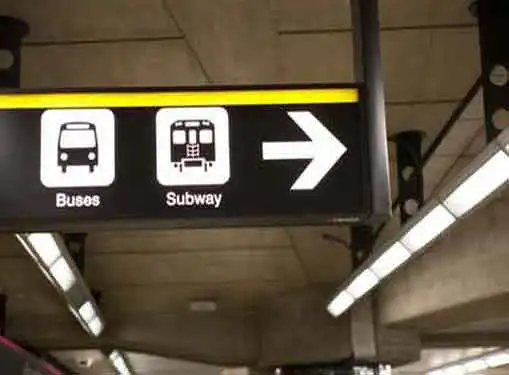Real Estate Articles
Transit Oriented Developments and Parking
Written by Brent Pace for Gaebler Ventures
If you are thinking about leasing office space in an urban area, one of the issues you will have to deal with is parking. This article discusses transit oriented developments and how to weigh the decision to lease in a transit oriented development versus a typical drive and park building.
If you are considering leasing office space in an urban area, parking will be a big issue for you.

This is especially true if your last space was in a suburban office park with tons of surface level parking. How can you decide if a transit oriented development, which may have very few parking spaces available, is going to be acceptable for you?
What Is Transit-Oriented Development?
First, you have to understand exactly what transit oriented developments are. Transit oriented developments are usually located within ½ mile of major transportation center. This means that commuter rail, light rail, bus, taxi, and/or ferry systems must have a hub of service very close to the development. Being close to transit by itself, however, would only constitute a transit proximate development.
To be a transit oriented development, the project itself has to encourage the use of mass transit for its tenants. In many cases this is done by being a mixed-use development. Having people live, work, and play at the same site can reduce the need for individual cars and help spur the use of transit. Another way in which transit oriented development can be assisted is through individual employers, or property owner, providing transit passes to employees as a part of their compensation and/or benefits package.
What Is The Parking Trade-Off?
A typical suburban office park can offer as many as 5 stalls of parking for every 1,000 square feet of office space you lease. In most cases this parking will also be free, meaning that it is thrown in as part of your lease. As you move toward more urban locations, however, the trade-offs become more noticeable.
A downtown mid-rise in a smaller urban area may have an accompanying parking garage. Lessees in the building may receive the rights to 3 or 4 stalls per 1,000 square feet leased. These stalls, however, will likely have to be paid for.
In the most-dense urban areas parking is at an absolute premium. Many office towers will offer very little parking and at a very high premium. Usually only executives and other high level employees manage to secure these posh parking passes. There may only be 1 stall per 1,000 square feet leased available, or less.
How To Decide?
One factor that is often over-looked in making this decision has to do with your employee base. Many companies that need to attract young, hip twenty- and thirty-somethings to work for them are moving toward the urban transit oriented developments. These folks are more willing than ever to go without cars and even live in urban areas.
If your firm relies on a lot of seasoned administrative help, and has an aging employee base, you might want to think twice about this change. Some older employees may not like the shift from their car onto the public transit system. This decision is as much about culture as it is about dollars and cents.
You should be aware that many cities are encouraging all new developments to be transit oriented. Cities are dropping parking requirements for new office projects. In even more drastic moves, some cities are putting parking caps on new projects, effectively forcing the clientele to find a different way to get to the site. But there are still plenty of opportunities between the two extremes of urban transit oriented development and suburban office parks. Talk to your employees and weigh the costs to find which one is right for you.
Brent Pace is currently an MBA candidate at University of California at Berkeley. Originally from Salt Lake City, Brent's experience is in commercial real estate development and management. Brent will have tips for small business owners as they negotiate their real estate needs.
Share this article
Additional Resources for Entrepreneurs




Conversation Board
We greatly appreciate any advice you can provide on this topic. Please contribute your insights on this topic so others can benefit.